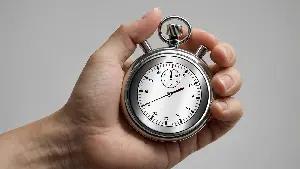Why Are We Spending Time Without Much Thought
Published:
 Time—it is, without a doubt, the most precious and irreplaceable resource we have. Unlike material possessions or even opportunities, once time is spent, it can never be reclaimed. Yet, despite its undeniable value, we often find ourselves moving through life without fully appreciating how we use it. In the whirlwind of daily responsibilities, obligations, and distractions, we sometimes treat time as though it is endless, only to later pause and wonder: Where did the hours go?
Time—it is, without a doubt, the most precious and irreplaceable resource we have. Unlike material possessions or even opportunities, once time is spent, it can never be reclaimed. Yet, despite its undeniable value, we often find ourselves moving through life without fully appreciating how we use it. In the whirlwind of daily responsibilities, obligations, and distractions, we sometimes treat time as though it is endless, only to later pause and wonder: Where did the hours go?
Our modern lives are busier than ever, filled with countless demands on our attention, from work deadlines to social engagements, from household chores to the endless scrolling through digital content. Days blur into weeks, and weeks into months, leaving many of us with a lingering sense that time is slipping through our fingers. This feeling of fleeting time can be unsettling, especially when we reflect on how much of it is spent on things that do not truly matter to us—things that neither fulfill us nor contribute to our growth and happiness.
The truth is, time passes at the same steady pace for everyone, but how we choose to spend it determines the quality of our lives. Being intentional about time means pausing to evaluate how we allocate our precious hours. Are we investing our time in activities and people that bring us joy, purpose, and connection? Or are we caught in a cycle of busyness, rushing from task to task without truly experiencing the moments that make life meaningful?
Cultivating a mindful relationship with time starts with awareness. By slowing down and reflecting on our priorities, we can begin to align our daily actions with our long-term goals and values. This might mean setting boundaries to protect our time, saying no to things that drain us, or carving out moments for rest and self-care. It also means embracing the present, savoring the little joys, and recognizing that even mundane moments hold the potential for beauty and gratitude.
Ultimately, time is not just something we spend—it is the medium through which we live our lives. By treating it with care and intention, we can ensure that the hours we have are not just passed but lived fully, creating memories, growth, and a sense of fulfillment that endures far beyond the ticking clock.
Let’s take a moment to ponder why this happens.
Busy Bees: We live in a world where everyone seems to be in a hurry. Work, school, chores – the list goes on. We become like busy bees, buzzing from one task to another without pausing to consider if we’re spending our time wisely.
Digital Distractors: The digital world has brought us many wonderful things, but it has also given us endless distractions. Social media, games, and countless apps compete for our attention, leading us to lose track of time without even realizing it.
Lack of Prioritization: Sometimes, we don’t stop to think about what’s truly important. We get caught up in the small, less meaningful tasks, neglecting the bigger picture. Without setting priorities, we may find ourselves spending time on things that don’t contribute much to our happiness or success.
Procrastination Puzzles: Procrastination is a sneaky thief of time. We delay important tasks, thinking we have plenty of time, only to realize later that time has slipped through our fingers. Understanding the value of time can help us overcome the procrastination puzzle.
FOMO (Fear of Missing Out): The fear of missing out on something exciting or important can drive us to overcommit and spread ourselves too thin. Saying ‘yes’ to everything may leave us with little time for the things that truly matter.
Mindless Multitasking: In the quest to be more productive, we often resort to multitasking. However, studies show that multitasking can be less efficient and more time-consuming. Focusing on one task at a time may actually save us time in the long run.
Reflection and Awareness: Taking a step back to reflect on how we spend our time can be eye-opening. Are we investing our time in activities that align with our goals and values? Being aware of how we use our time empowers us to make more intentional choices.
In conclusion, time is a limited resource, and once it’s gone, we can’t get it back. By recognizing the factors that contribute to mindless time-spending, we can make conscious decisions to use our time more wisely. Let’s break free from the cycle of busyness and start making the most of our most valuable possession – time.